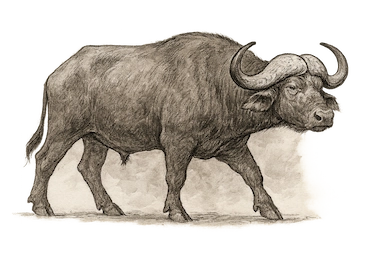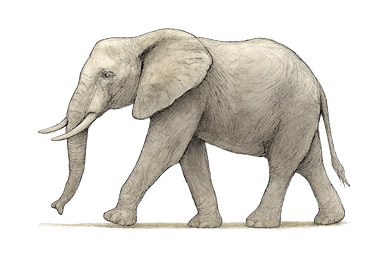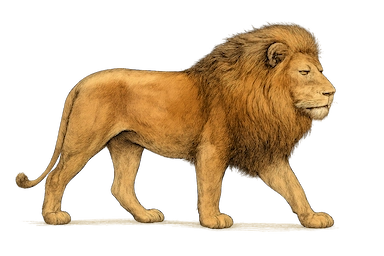- Home
- Kruger Guide
- Mammals
- Leopard
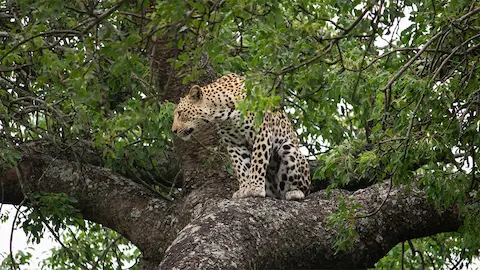
Leopard in Kruger National Park
If you've ever dreamed of seeing a leopard in the wild, Kruger National Park is one of the best places in Africa to make it happen. These spotted cats are the most elusive members of the Big Five, masters of stealth, blending perfectly into the bush, and often moving like ghosts through the tall yellow-thatching grass. In this guide, we'll chat about how many leopards are in Kruger, where to spot them, what they get up to, and the best times of year to catch a glimpse.
Are There Leopards in Kruger National Park?
Absolutely! Kruger National Park is one of the national parks where you can see them in their natural habitat. They are in healthy numbers, spread across the park's rivers, woodlands, rocky outcrops and savannas. But to find and spot them succesfully is not always easy, they are quite illusive, and mostly start moving when the sun sets.
How Many Leopards in Kruger National Park?
Estimates suggest well over 1,000 leopards range across Kruger’s ~20,000 km². Because leopards are solitary and mostly nocturnal, exact counts are tough, but a long history of ranger records, camera-trap projects, and research confirms a healthy, stable population.
Where to See Leopards in Kruger
Focus on riverine bush, drainage lines, and koppies. Drive slowly at first light and late afternoon, and look up—a dangling tail in a jackalberry or sausage tree is a classic giveaway.
- Lower Sabie & Skukuza (South): The Sabie River corridor (H4-1 & H4-2) is leopard central at dawn and dusk.
- S65 & S114 loop: Often dubbed the “Leopard Highway” between Skukuza and Pretoriuskop.
- Olifants & Letaba (Central): Good cover + prey density = consistent adult leopard activity.
- Pafuri & Luvuvhu (Far North): Lush, remote, and rewarding for patient spotters.
Leopard Behaviour in Kruger
- Solo ambushers: Silent stalkers of impala, bushbuck, monkeys—then a burst of speed.
- Tree stashers: They hoist kills to avoid hyenas and lions. Check mid-branches for carcasses.
- Territory tells: Scratch marks, urine spray, and a loud, rasping “sawing” call at night.
- Mothers & cubs: Dens are hidden in thickets; sightings of cubs are rare and special.
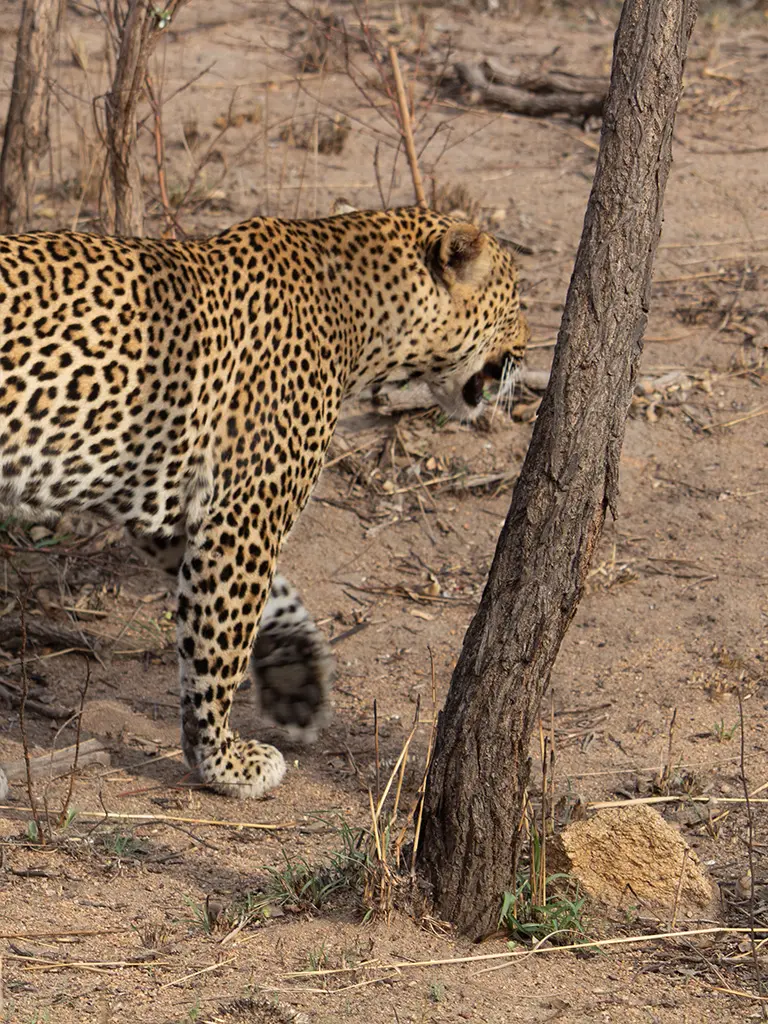
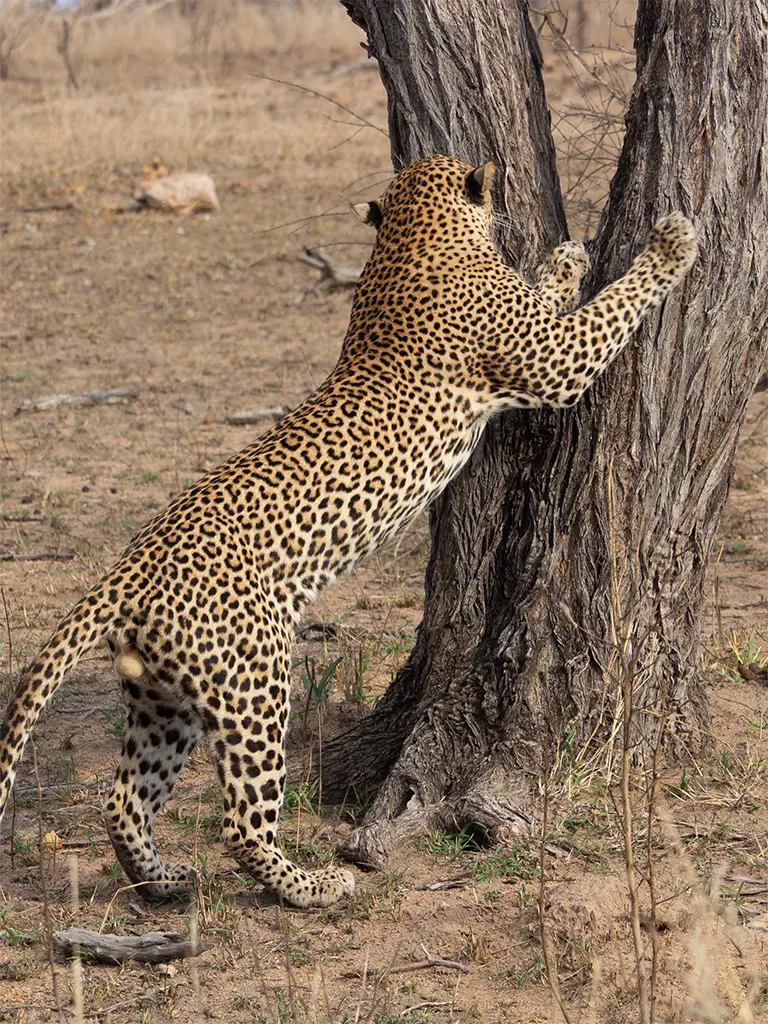
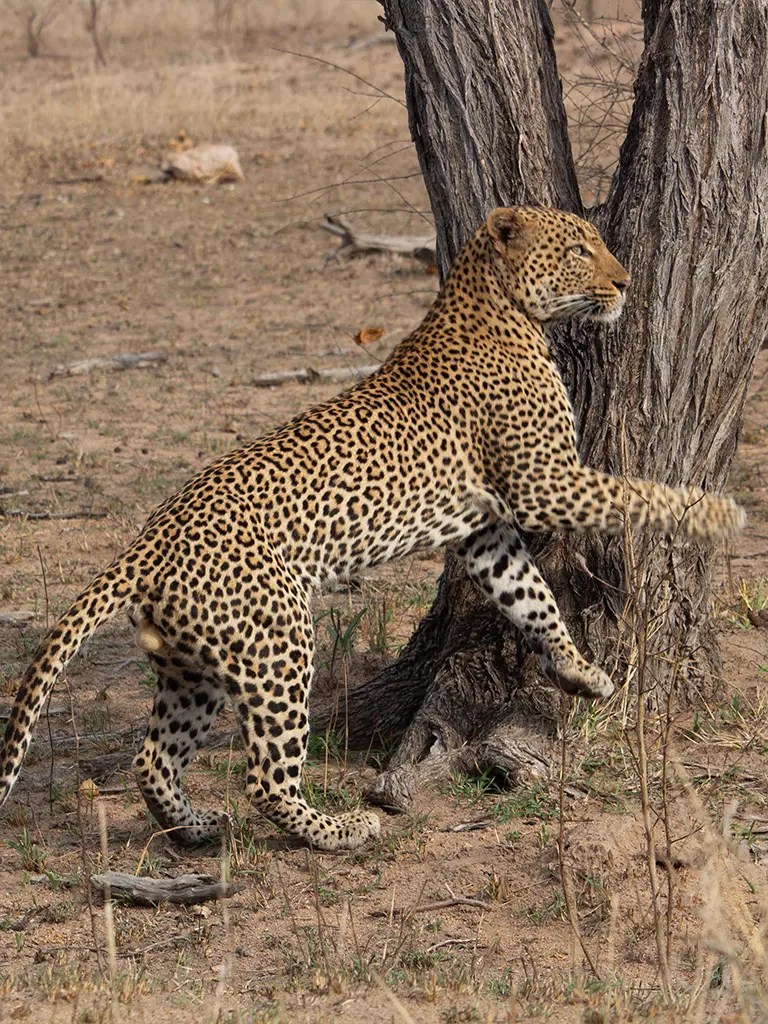
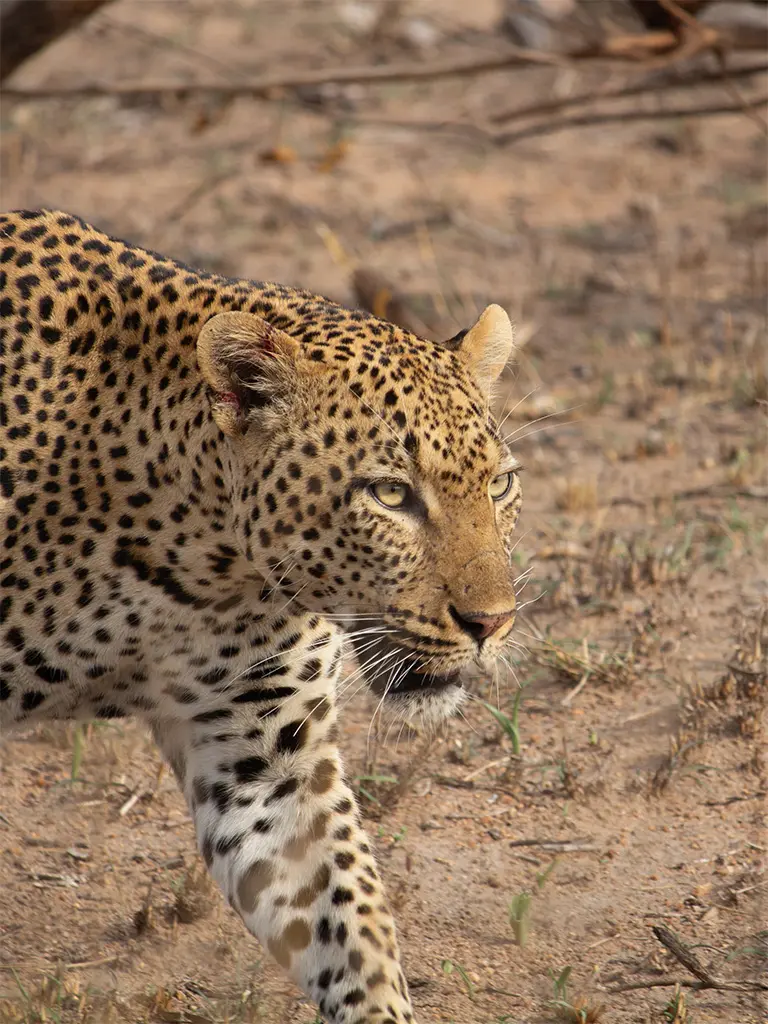
Best Time to See Leopards in Kruger
You can find leopards in Kruger all year:
- Dry season (May–Oct): Sparse vegetation improves visibility, especially near permanent water.
- Wet season (Nov–Apr): Thicker bush, but striking tree-top sightings against the green backdrop.
Prime hours are early morning and late afternoon. Want to plan by season? See our guides to the best time to visit Kruger and Kruger National Park weather.
Tips for Spotting Leopards on Safari
- Use binoculars to scan riverbanks, thickets, and mid-level branches.
- Listen for vervet monkey or baboon alarm calls—they often spot leopards first.
- Drive slow and steady; patience beats speed for cats.
- Check recent sightings boards at camps like Skukuza and Satara.
Ready to look for leopards in Kruger?
Join our expert guides for the best routes and timing to maximise leopard sightings.
